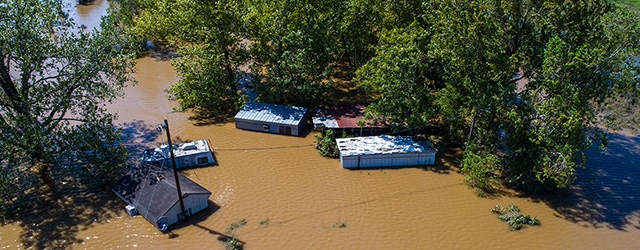Fighting climate change is not just for the private sector.

Climate change means the planet is likely to experience more droughts, floods, and unexpected natural events, which creates considerable uncertainty, potential for damage and financial risks. Central banks are starting to prepare. As yet, however, the debate has fallen short of what some climate activists are calling for: monetary policy portfolios used as tools to steer green investments.
A pioneer in this burgeoning field is the Bank of England. BoE Governor Mark Carney started talking about the financial risks stemming from climate change back in 2017, highlighting how floods impact insurance and mortgages. Since then, a group of 46 regulators and central bankers gave life to the Network for Greening the Financial System, or NGFS, a forum for debate and strategies. In November, the Federal Reserve Bank of San Francisco hosted the NGFS’s first conference on climate change.
Reserve Governor Lael Brainard noted in her speech that climate change will affect productivity, and “there may be implications for the long-run neutral level of the real interest rate.” She referred to research that suggests heat waves can impact economic output.
Isabelle Mateos y Lago, managing director and deputy head of BlackRock’s Official Institutions Group, says using monetary policy as a tool should be done without compromising central banks’ main policy of price stability. “Should they be helping to fight climate change? The answer has to be yes—within their mandates,” Mateos y Lago, a former IMF official, wrote in an opinion piece published in the Financial Times.
Despite notable efforts by the NGFS, Mateos y Lago says there is less consensus around using central bank balance sheets to fight climate change. “Surveys indicate that some [banks] have started doing this in their portfolios unrelated to monetary policies, such as foreign exchange reserves, and more are in the process of considering it,” she says. “But most are doing neither.”
Climate change can be a slippery slope: “Today climate change, tomorrow social inequality and more,” says Mateos y Lago. And this is why there are likely to be limits on any financial assistance central banks provide.



